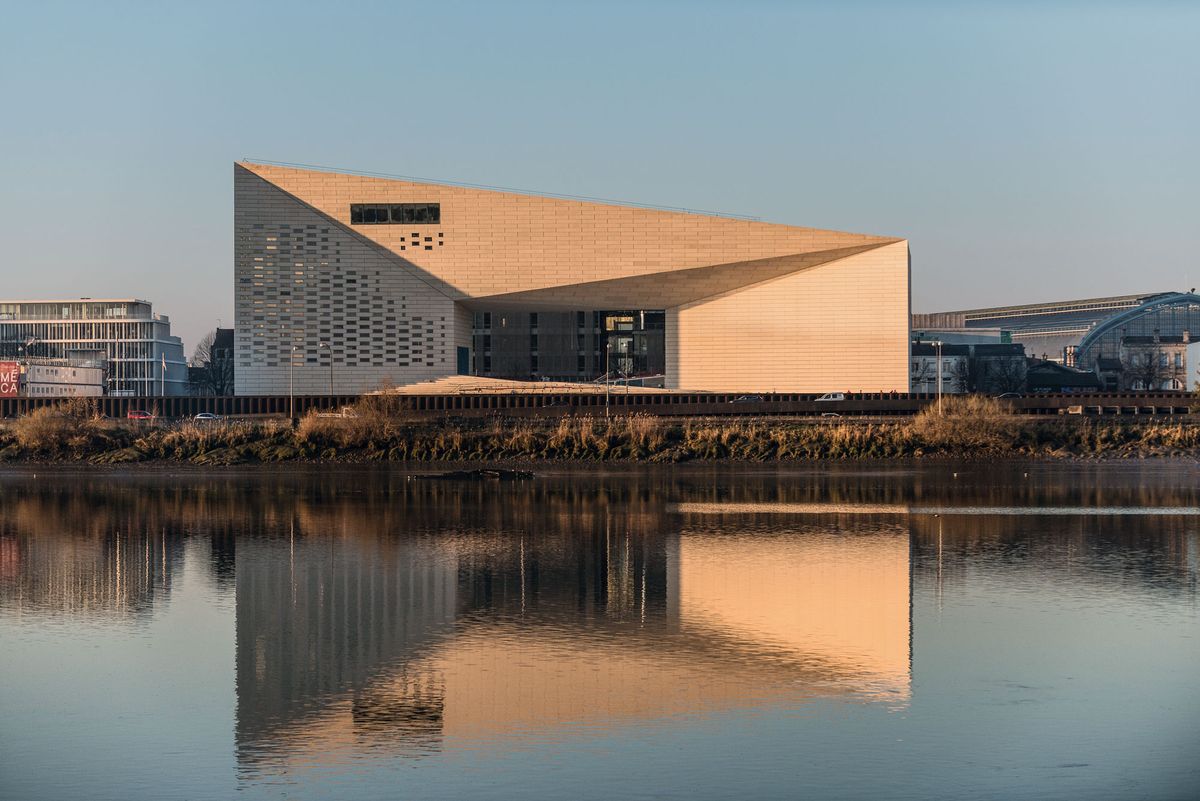The city of Bordeaux will unveil its new waterfront cultural hub for contemporary art and other creative industries on 28 June. Designed by the Danish architectural agency BIG (Bjarke Ingels Group) in partnership with the Parisian firm Freaks, the Meca (Maison de l’Économie Créative et de la Culture) aims to widen access to the arts in Bordeaux and the Nouvelle Aquitaine region in southwest France. The €60m venue has been financed primarily by the region, with €4m coming from the French state.
Occupying the site of a former abattoir on the banks of the river Garonne, the Meca houses the Frac regional art centre, a performing arts centre and an agency for books, cinema and audiovisual media. BIG’s striking, asymmetrical building with a diagonal roof invites visitors to walk across a ramp from Bordeaux’s former meat-packing district to the river, even when the venue is closed.
“The idea is to create cultural synergies and visibility in a building that embodies our commitment to contemporary creation, an international presence and the regeneration of the area,” says Meca’s project manager, Frédéric Vilcocq. “The cross-fertilisation [of media] is very important, giving way to new ways of thinking,” adds Bernard de Montferrand, the chairman of Frac Nouvelle-Aquitaine Meca.
With 1,200 sq. m of exhibition space, the Frac spans the three upper levels of the Meca and boasts a vast terrace overlooking the city. The centre is independent from Bordeaux’s museum of contemporary art, CAPC, and also organises travelling exhibitions throughout the region.
The inaugural show at the Meca, Once upon a time in the West (29 June-9 November), features works from the 1,200-strong collection as well as loans from private and public collections, including the Norval Foundation in Cape Town. Among the highlights is Pascal Convert’s 2016-17 series of photographs of Bamiyan, Afghanistan, showing the voids in the cliff left by the Taliban’s destruction of the Bamiyan Buddhas in 2001. Convert’s project was shortlisted for the French pavilion of the 2017 Venice Biennale but was beaten by Xavier Veilhan.
On the Frac’s fourth floor are two studios for artists in residence. Local companies specialising in leather, metal, wood and laser-cutting will assist artists to make new works. Vilcocq describes the public-private partnership as a new model for France’s network of Frac regional art centres (Fonds régionaux d’art contemporain).
The former French culture minister, Jack Lang, launched the Frac concept in the early 1980s in a bid to “decentralise” culture and make it more present in the regions. Nouvelle-Aquitaine’s art centre was first established in 1982. The newly rebranded Frac Nouvelle-Aquitaine Meca is one of six “new generation” venues built in the last decade by leading international architects.


